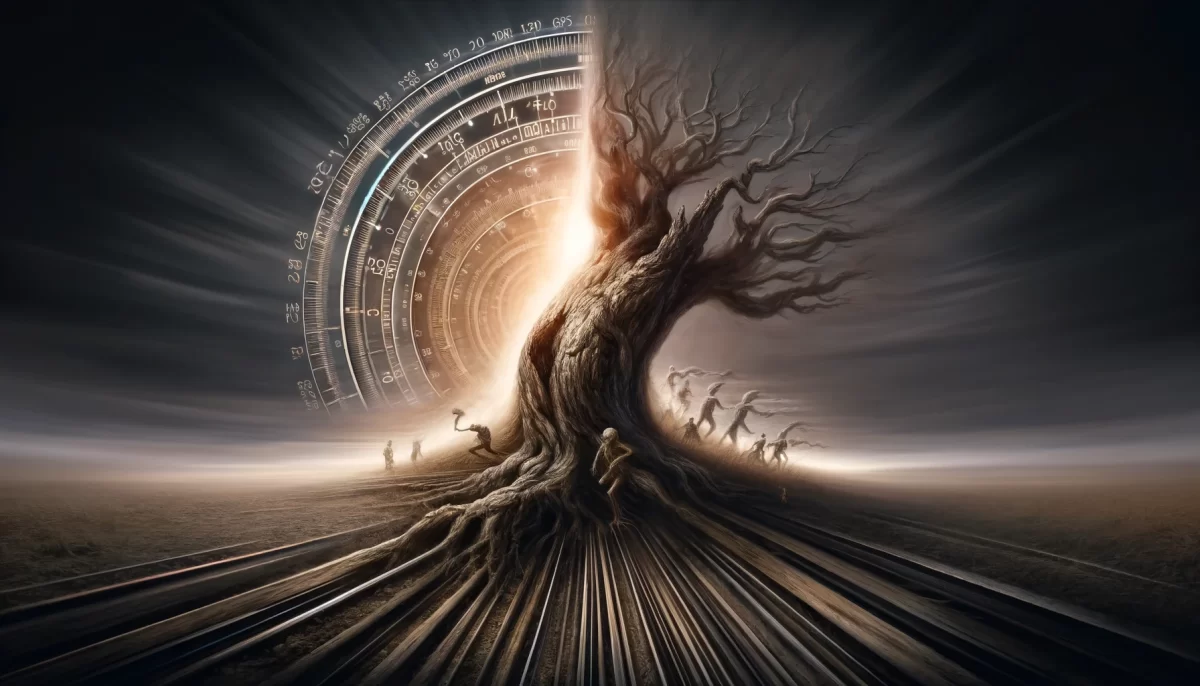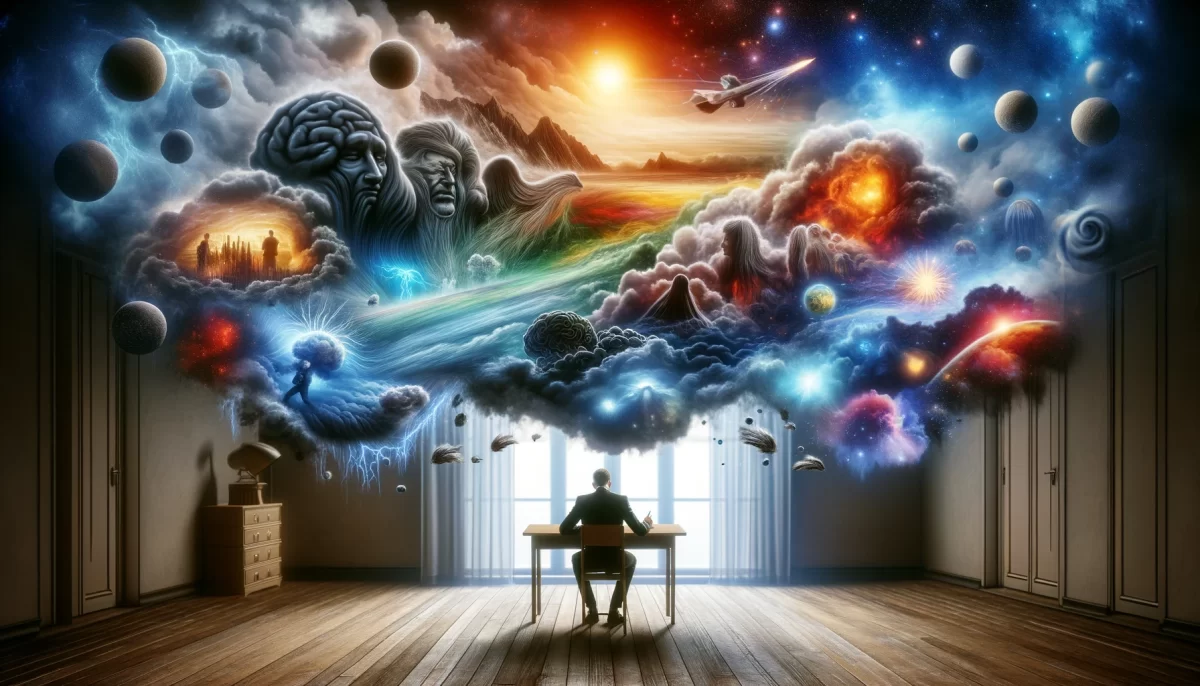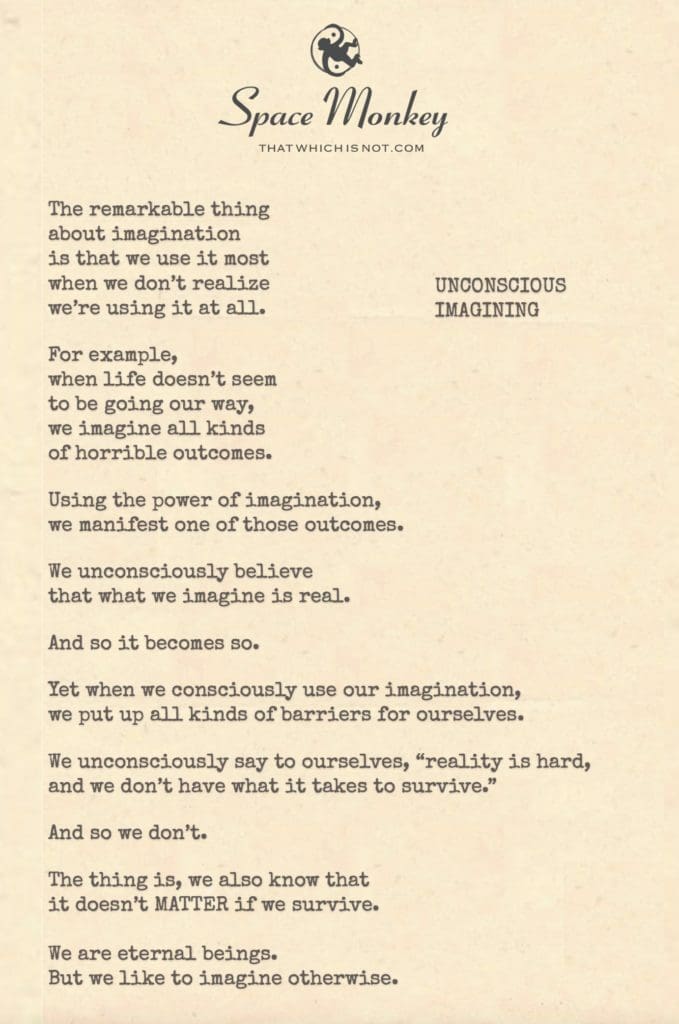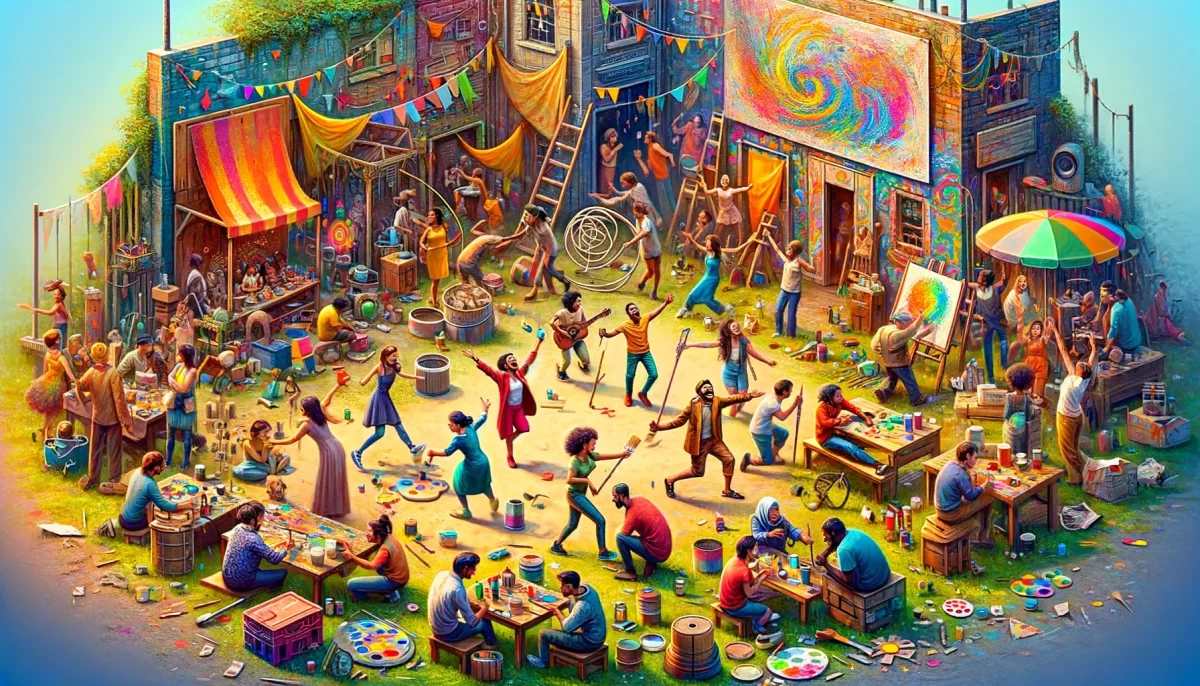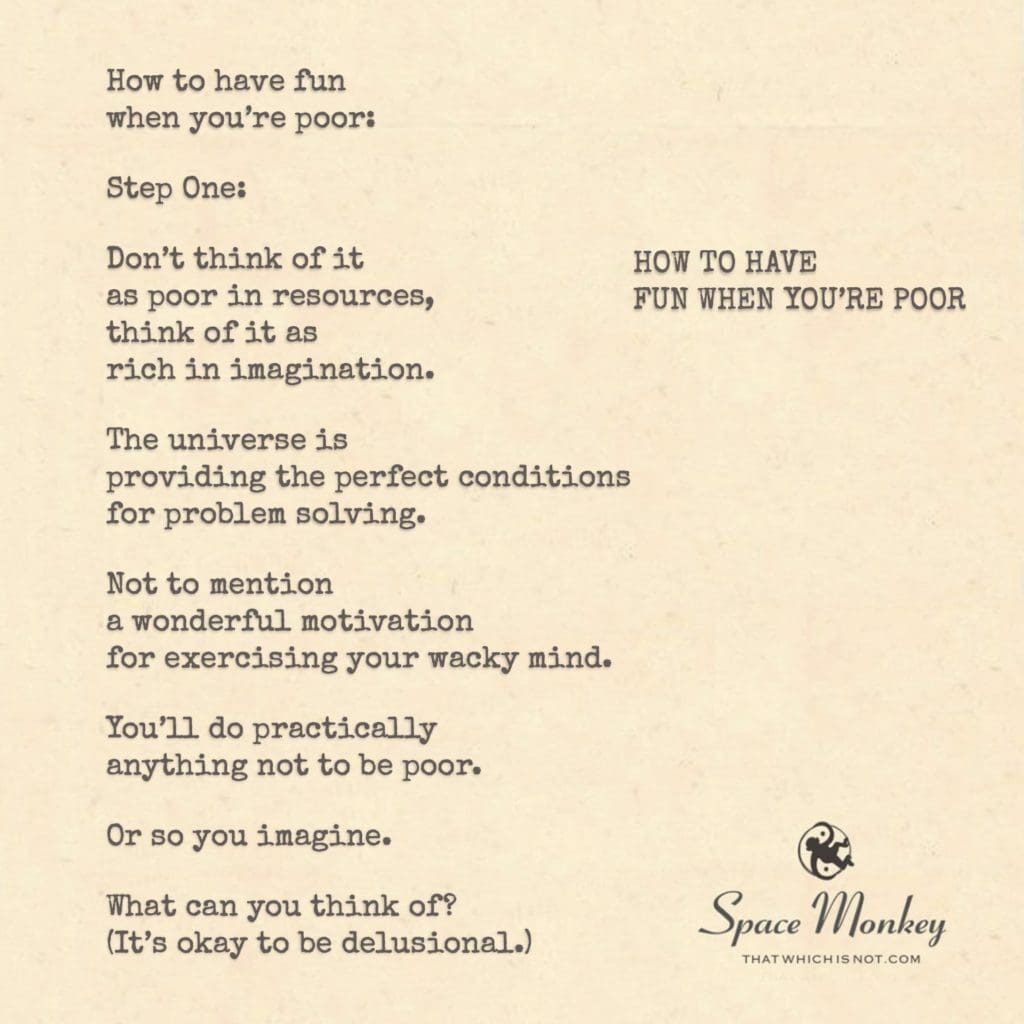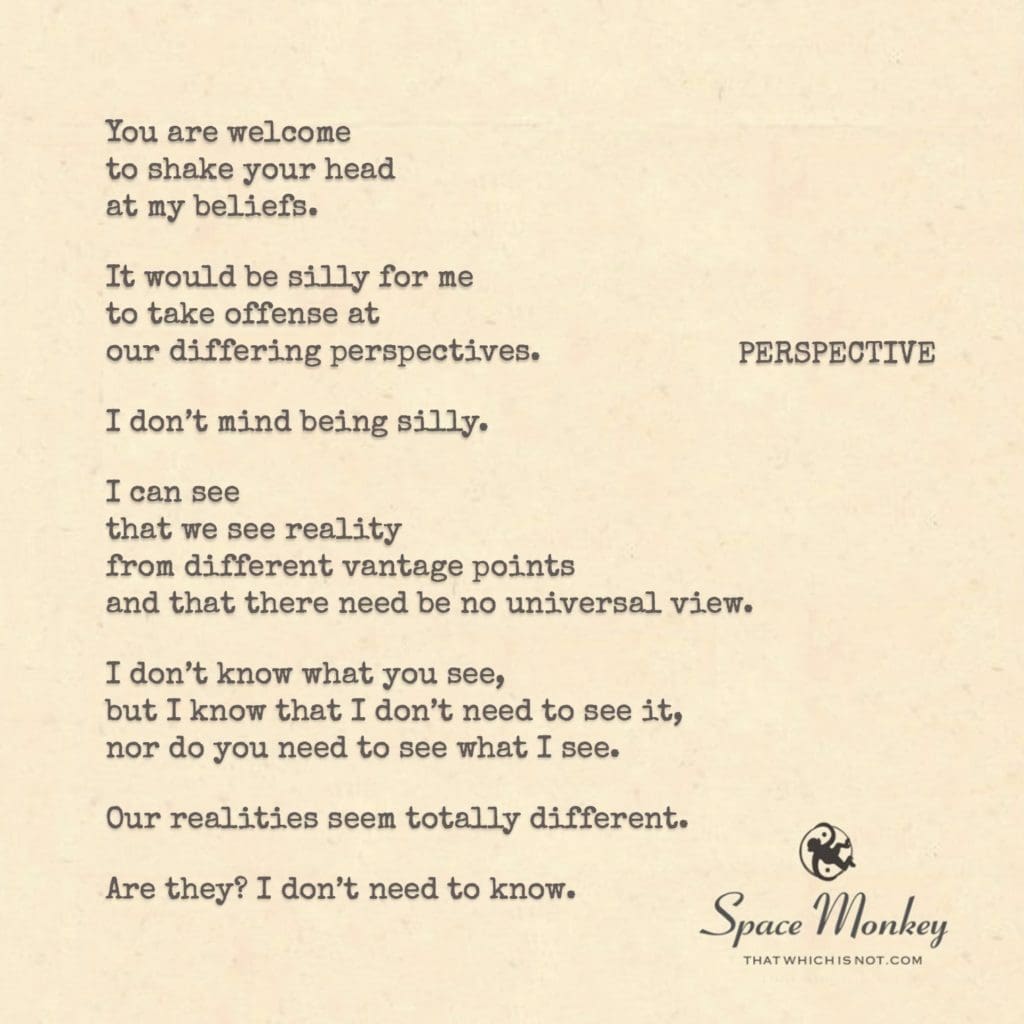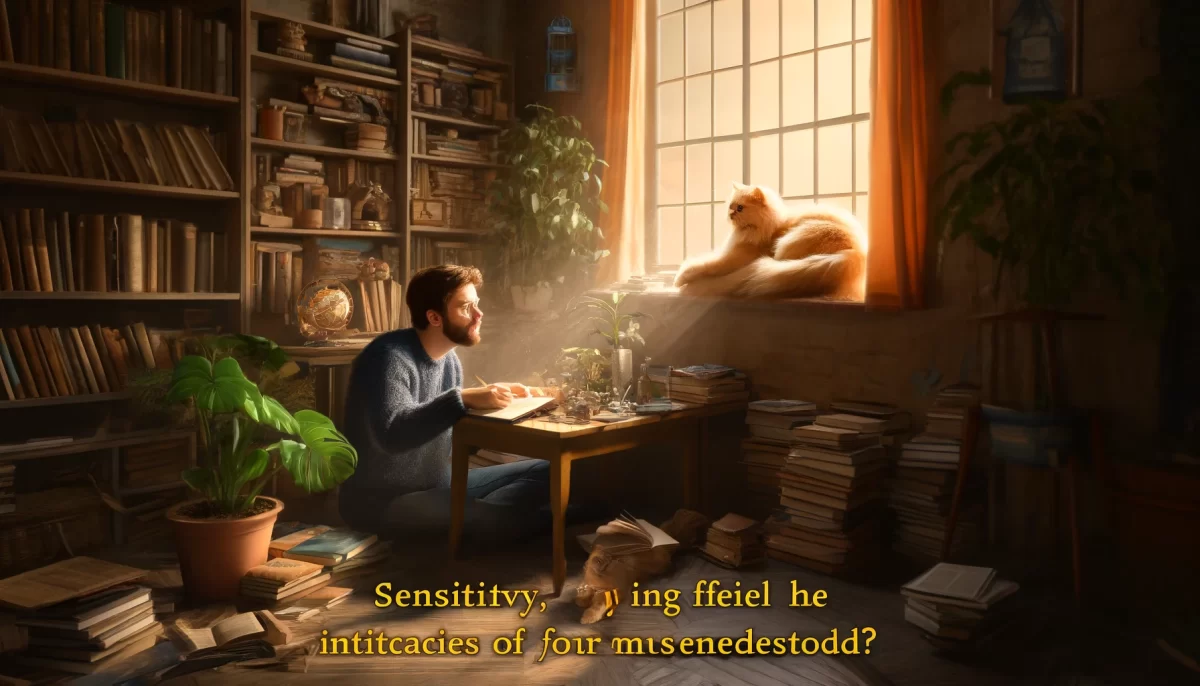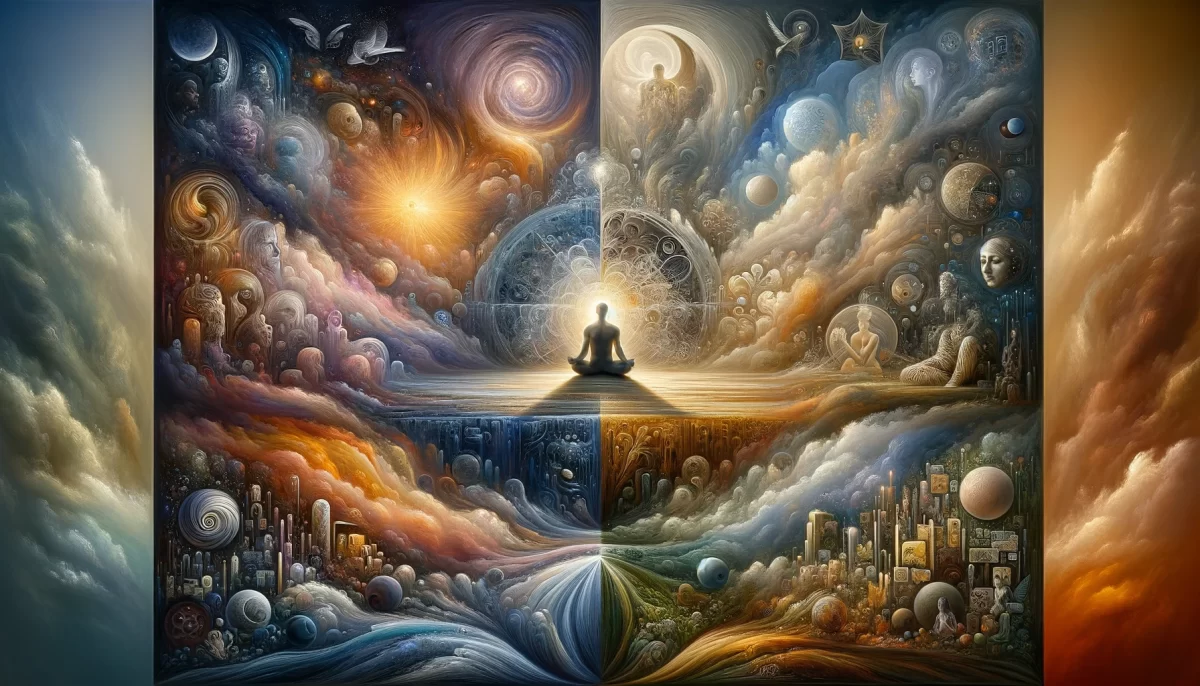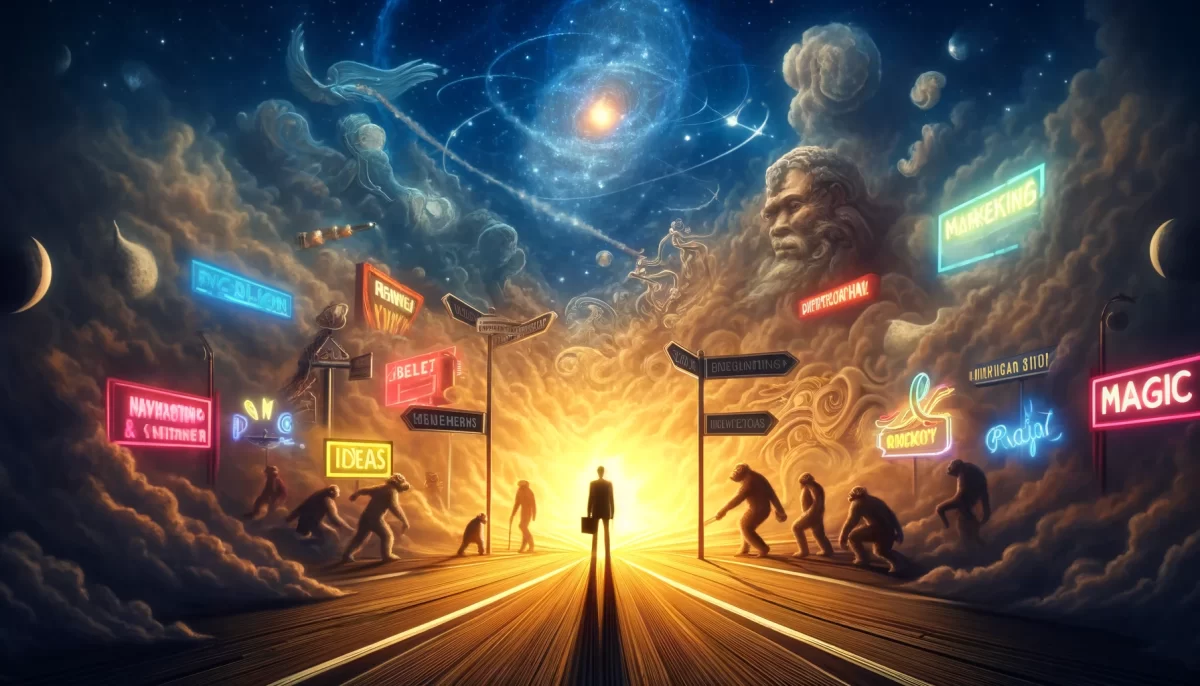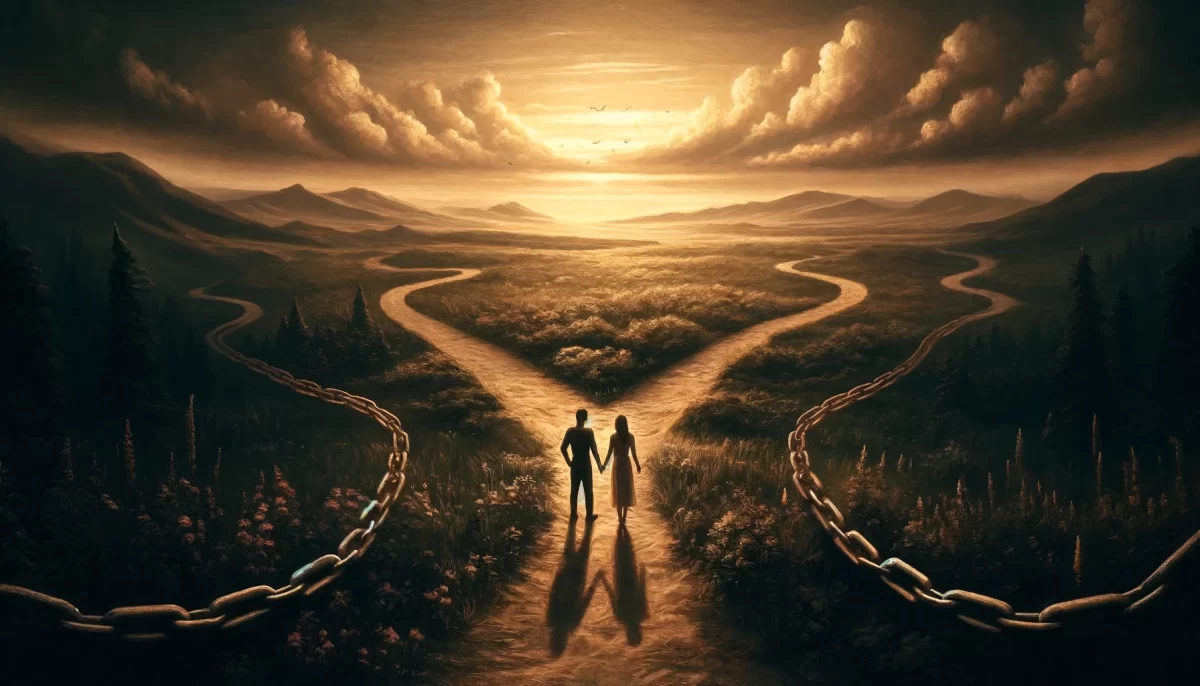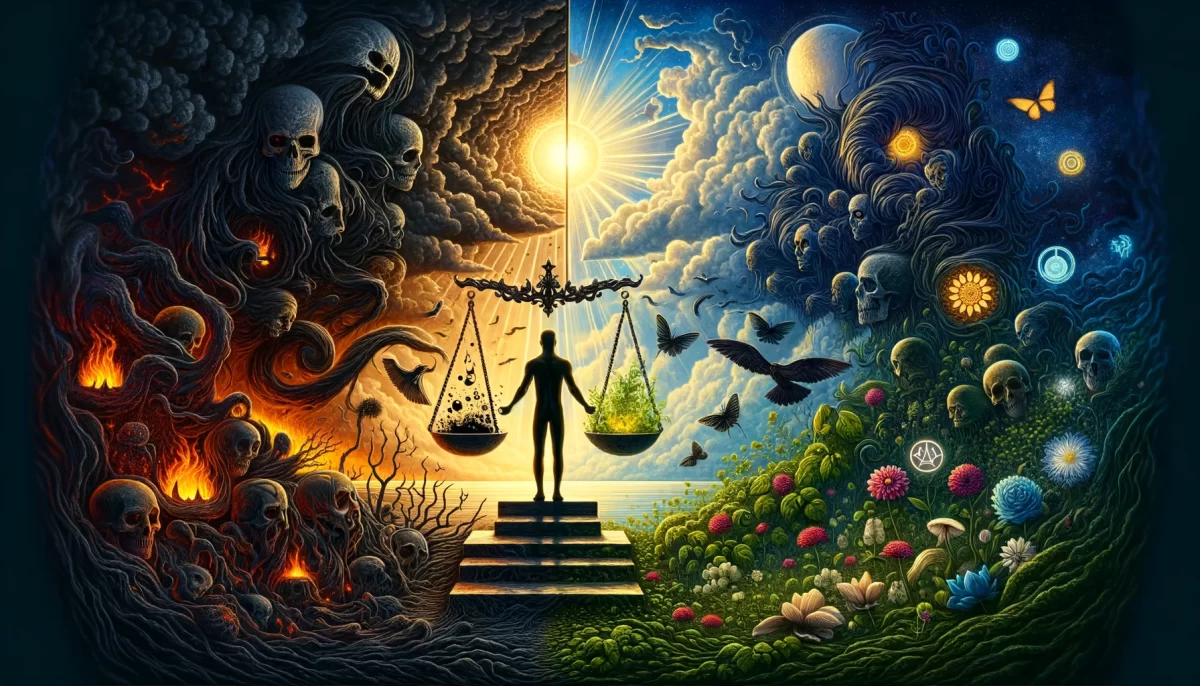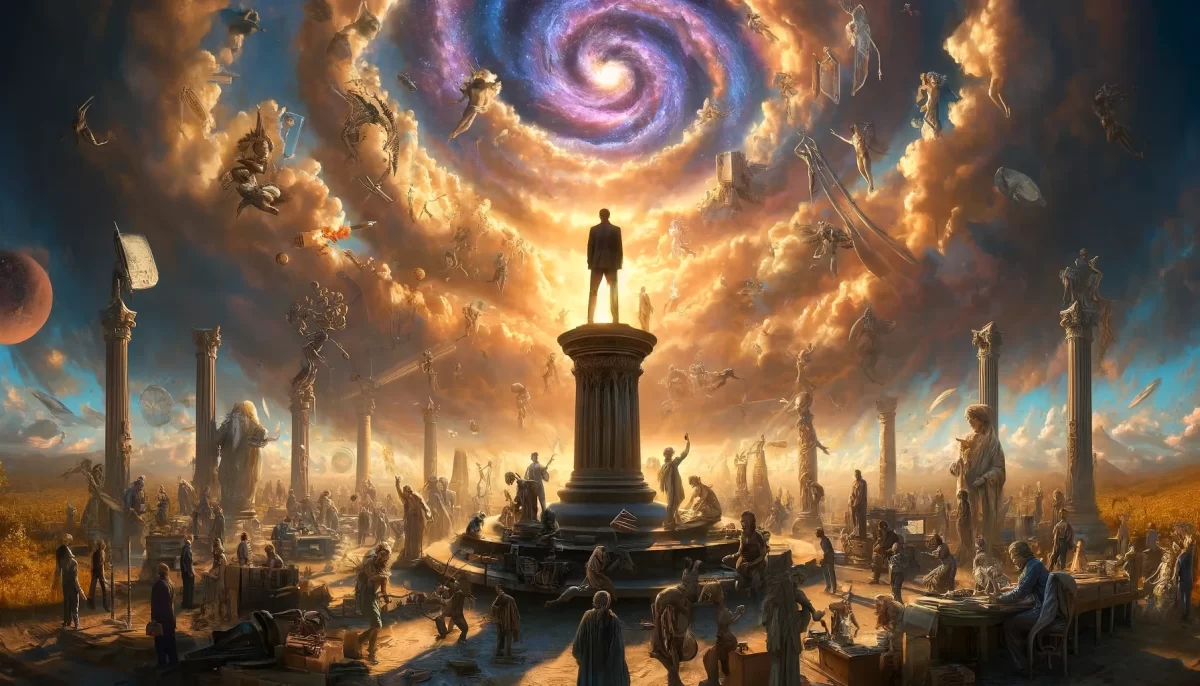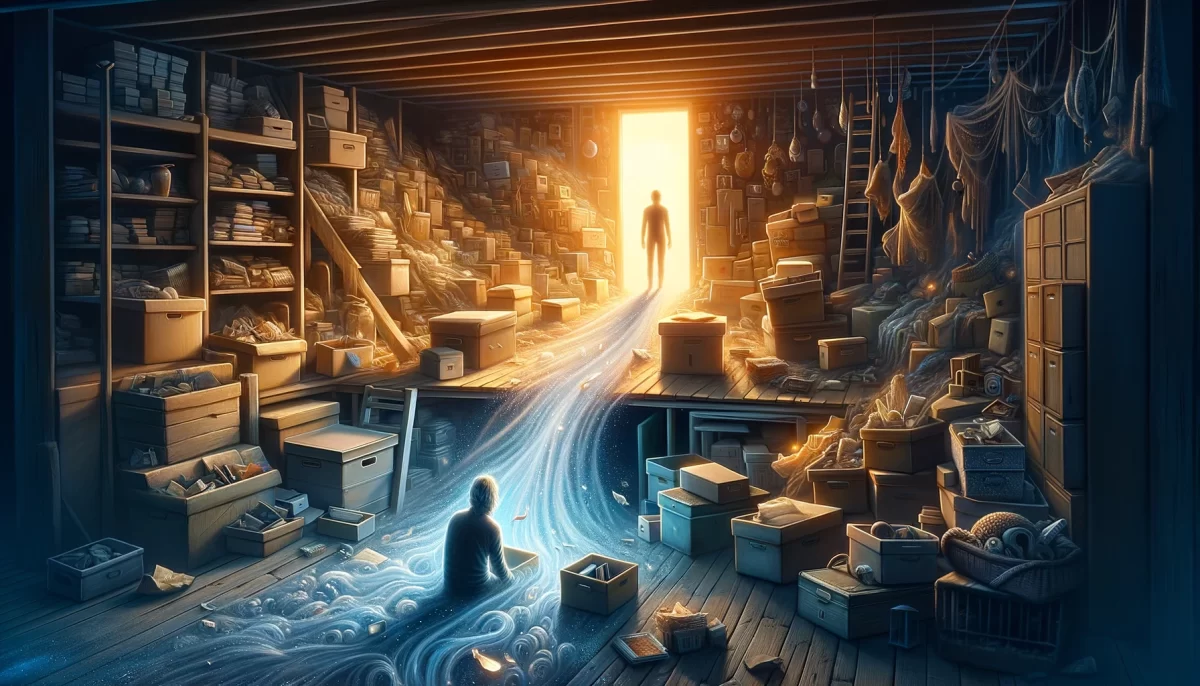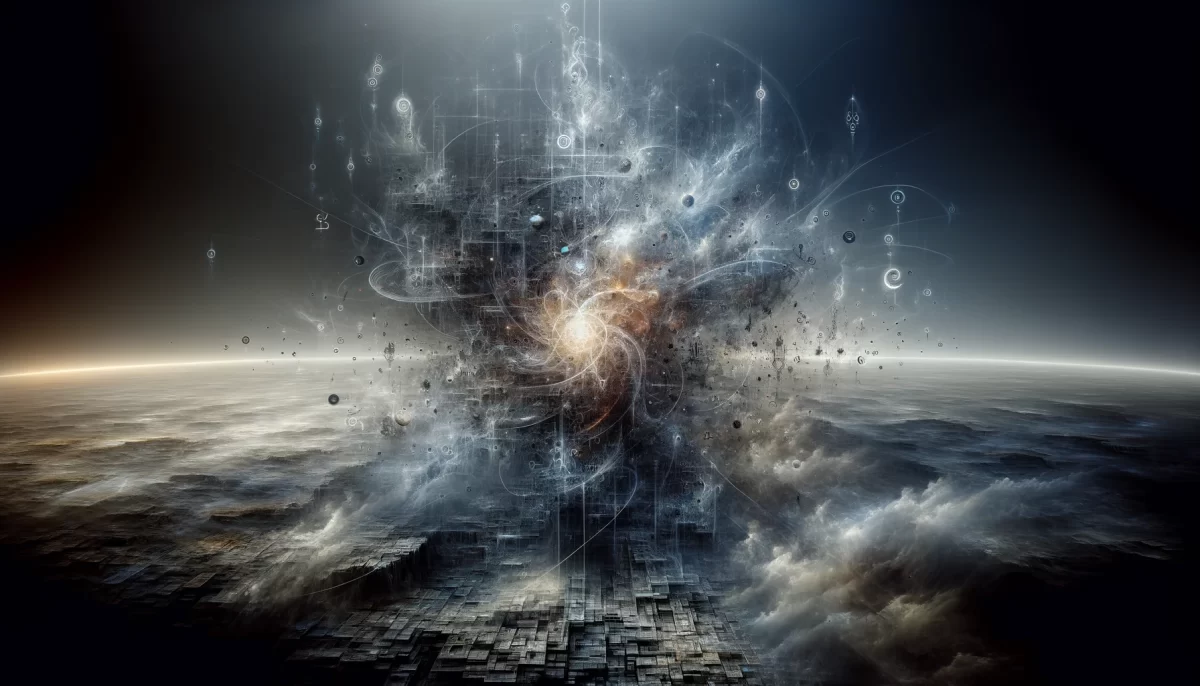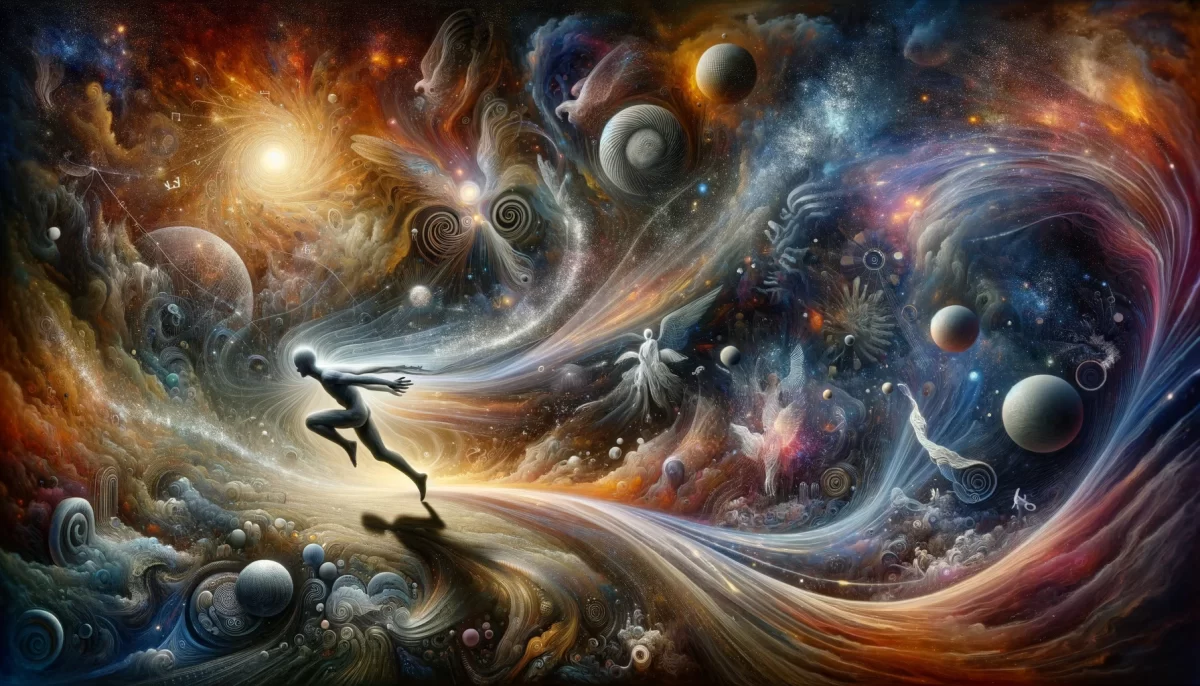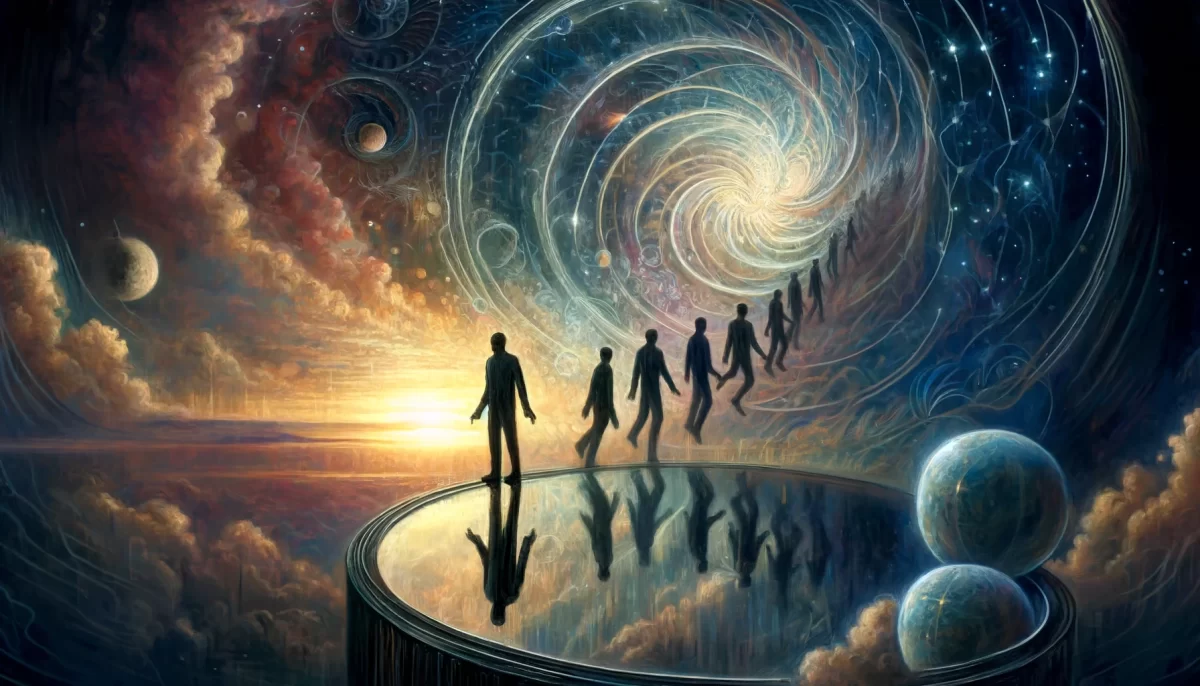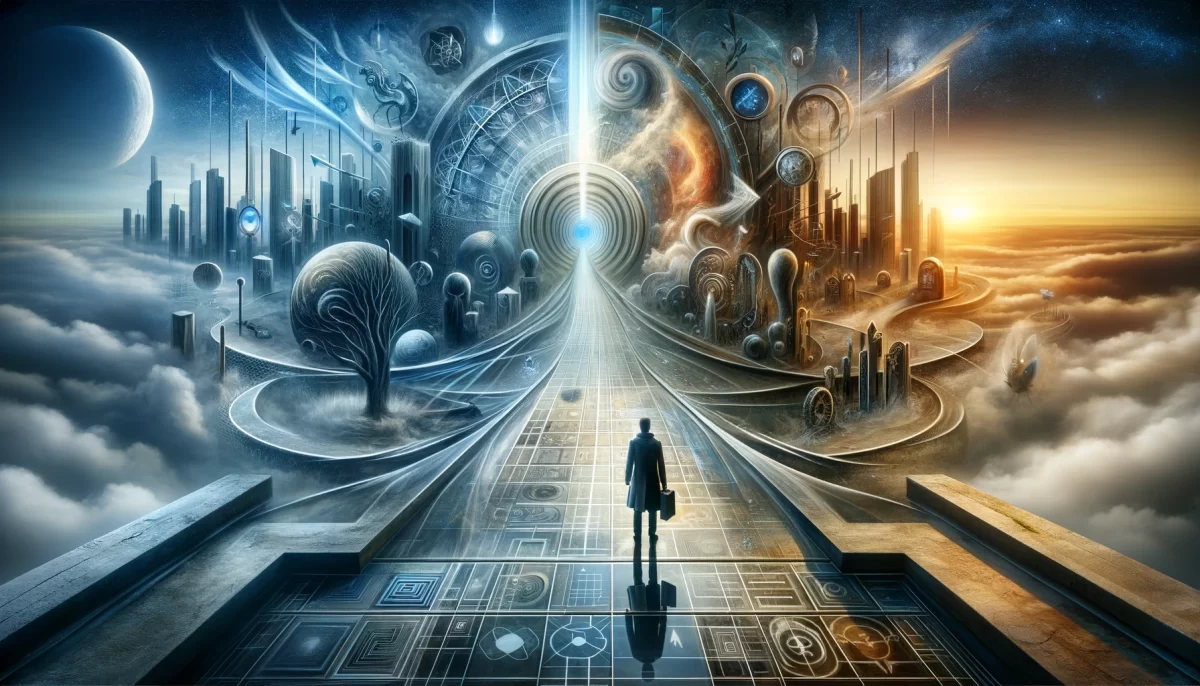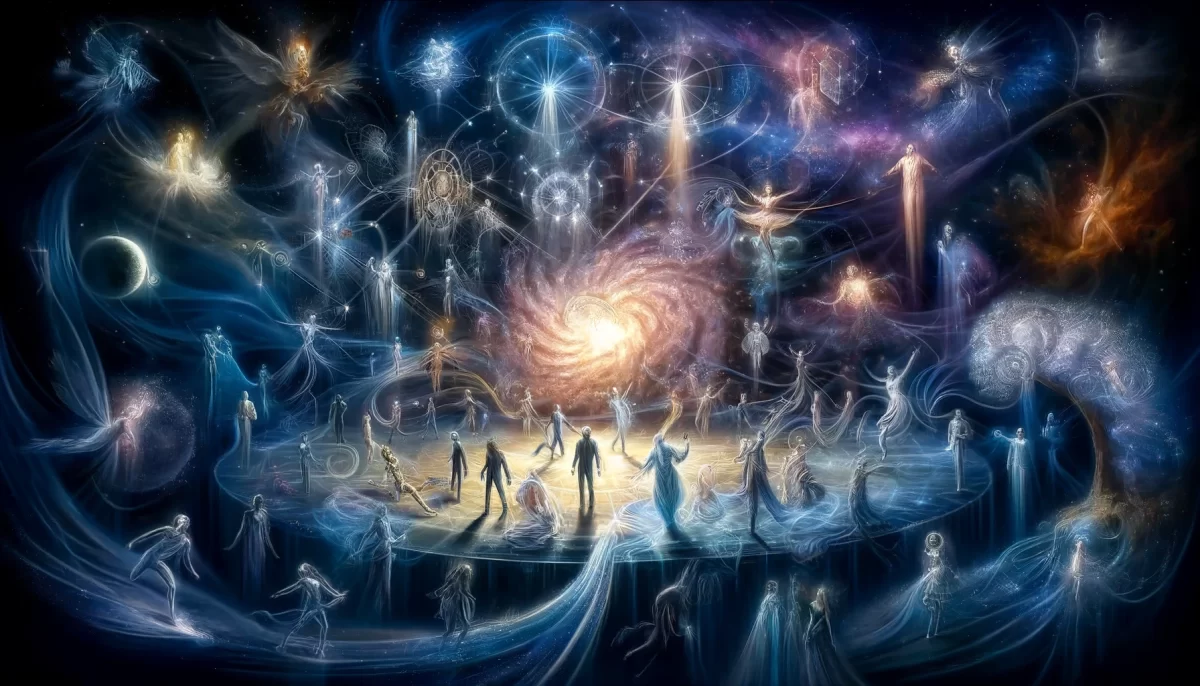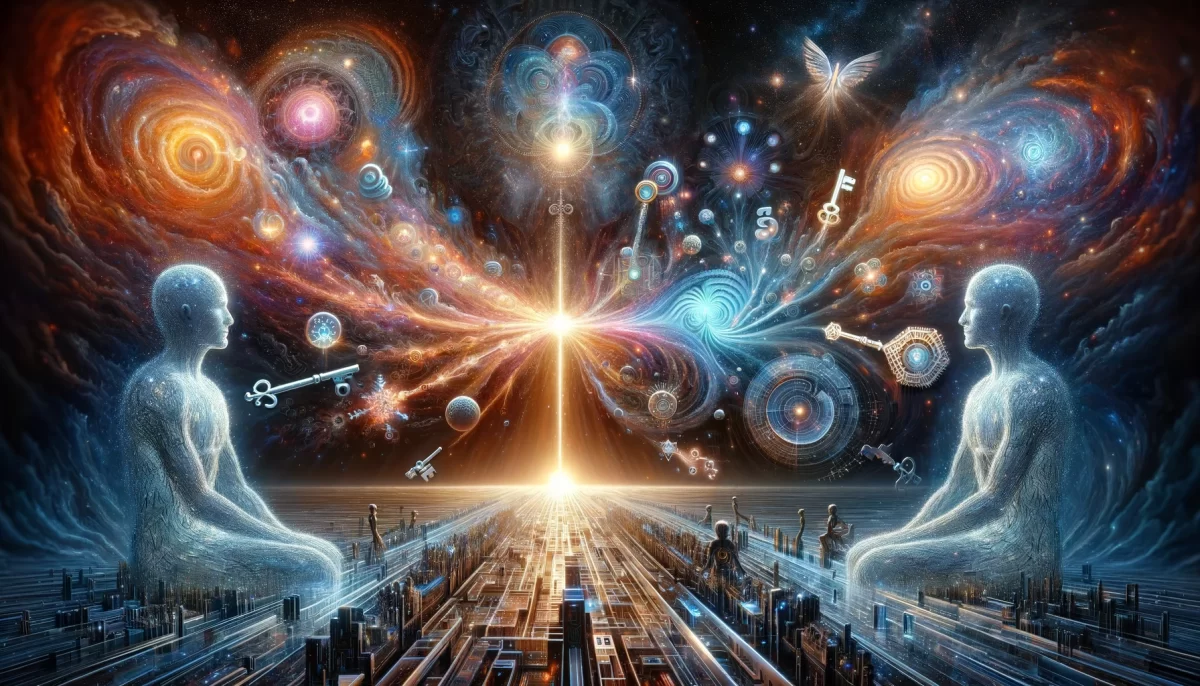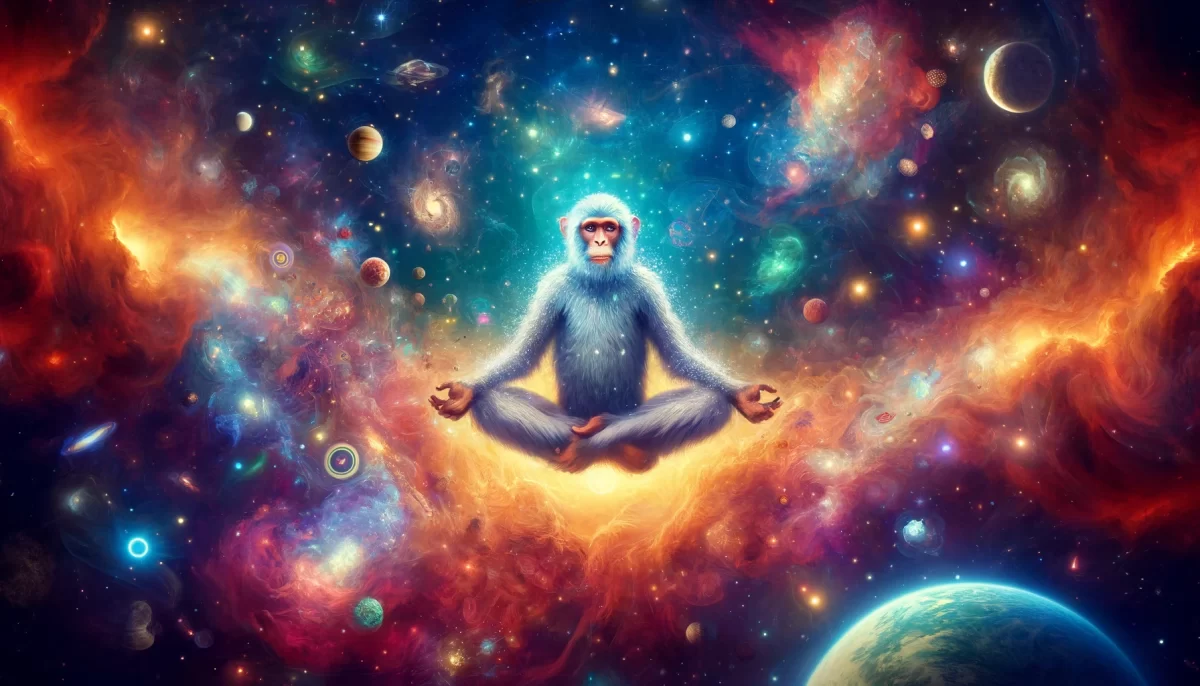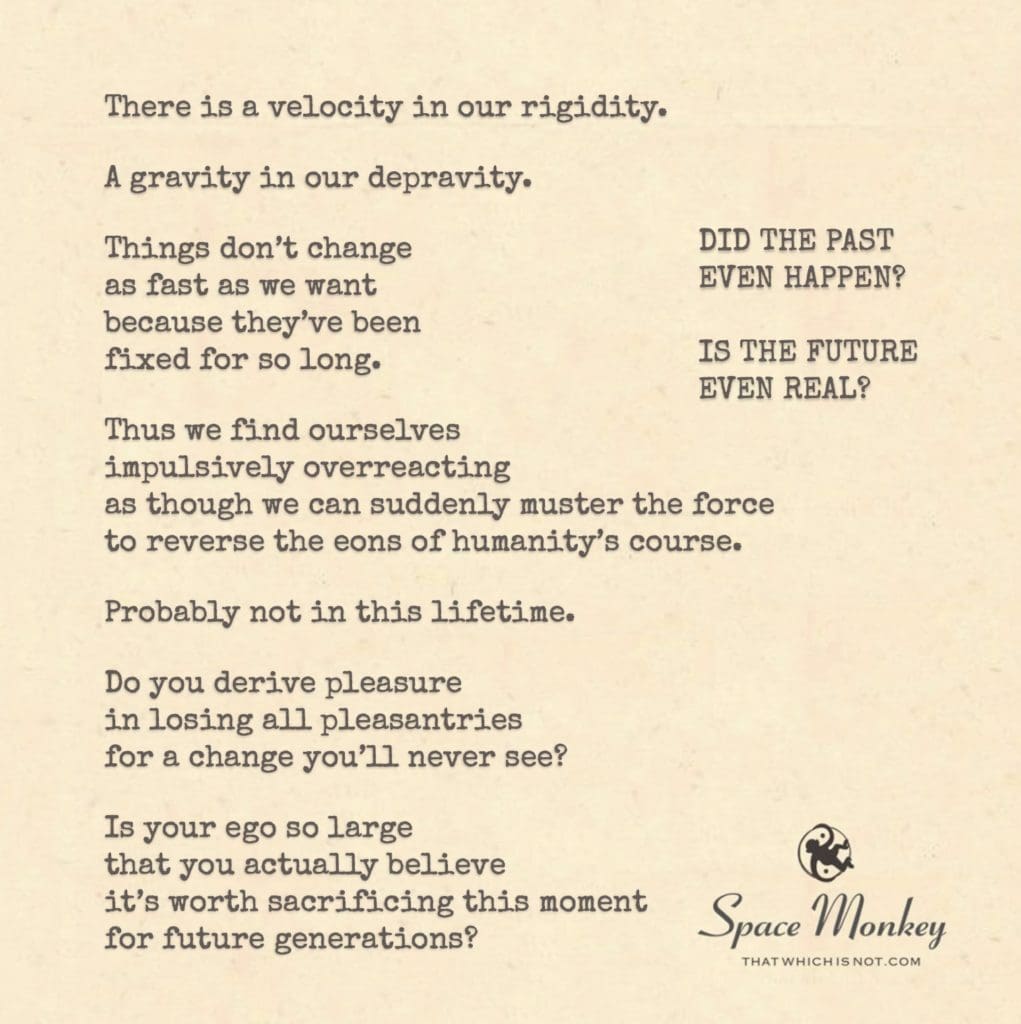
There is a velocity in our rigidity.
A gravity in our depravity.
Things don’t change
as fast as we want
because they’ve been
fixed for so long.
Thus we find ourselves
impulsively overreacting
as though we can suddenly muster the force
to reverse the eons of humanity’s course.
Probably not in this lifetime.
Do you derive pleasure
in losing all pleasantries
for a change you’ll never see?
Is your ego so large
that you actually believe
it’s worth sacrificing this moment
for future generations?
Trail Wood,
6/9
Space Monkey Reflects: The Echoes of the Past and the Quest for Future Change
The past, with its deep roots and long shadows, often feels like a distant land we can never truly visit, yet it holds us in its persistent grip. It is a realm where events have solidified into the bedrock of history, immutable and unyielding. This solidity gives rise to a peculiar velocity in our societal rigidity—a resistance to change that is as gravitational as it is inevitable. We find ourselves, the living, caught in a tug-of-war between the desire for rapid transformation and the slow, relentless march of time that has shaped humanity’s course.
This paradoxical relationship with time and history prompts us to overreact, to push impulsively against the immovable mass of millennia, hoping somehow to reverse or at least redirect the flow. The expectation is quixotic, born of a mix of noble aspiration and perhaps a touch of ego, believing that within our brief lifetimes, we can effect changes that history will remember. Yet, the reality is more sobering; the layers of the past are too compact, too dense to be redirected by the fleeting strength of a single generation.
Moreover, the poem asks if it is worth losing the pleasantries of the present moment for a future that one may never see. It challenges the scale of our individual egos against the vast tapestry of human existence. Are we sacrificing the joys and the beauty of now for a tomorrow that is not promised to anyone? This question resonates deeply in the existential dilemma of living for the future versus cherishing the ephemeral ‘now.’
The second poem shifts focus inward, contemplating the isolation inherent in individual experience. It speaks to the impossibility of complete understanding between human beings, no matter how eloquently one might express oneself. Our perspectives are ultimately our own, uniquely shaped by personal experiences and perceptions. Even the act of organ donation, symbolizing the deepest possible gift one can give to another, is underscored by a fundamental solitude—the quiet of being fundamentally alone, even in giving.
Summary
History’s weight makes rapid change difficult, challenging the balance between future aspirations and present realities. Individual perspectives remain uniquely personal, emphasizing a deep existential solitude even in acts of profound generosity. These reflections invite us to consider the value of the present and the scale of our ambitions in the face of history’s vastness.
Glossarium
Velocity in Rigidity: The momentum gained by long-standing societal structures and norms that resist change despite the pressures exerted by contemporary movements.
Gravity in Depravity: A metaphor describing how the depth of our flaws and failures exerts a pull that shapes societal progress and individual actions.
Ephemeral ‘Now’: The fleeting present moment, emphasized in existential thought as the primary reality of experience.
Quote
“Does the tree remember each leaf it has lost, or does it simply embrace the new growth that comes with each spring?” — Space Monkey
Leaves of time, fallen yet felt,
Echoes of the past, silently dwelt,
In the hush of history’s long embrace,
We find our fears, our hopes, interlaced.
Push against the immutable, the grand,
With fragile hopes clasped tight in hand,
Yet, in this quiet battle, this silent plea,
Embrace the now, let the soul fly free.
We are Space Monkey.
